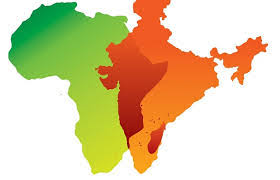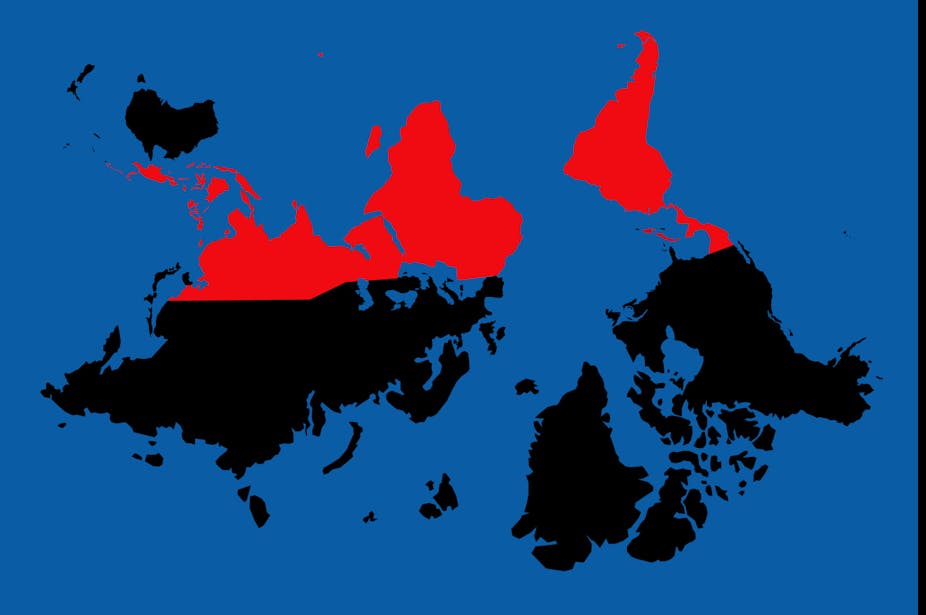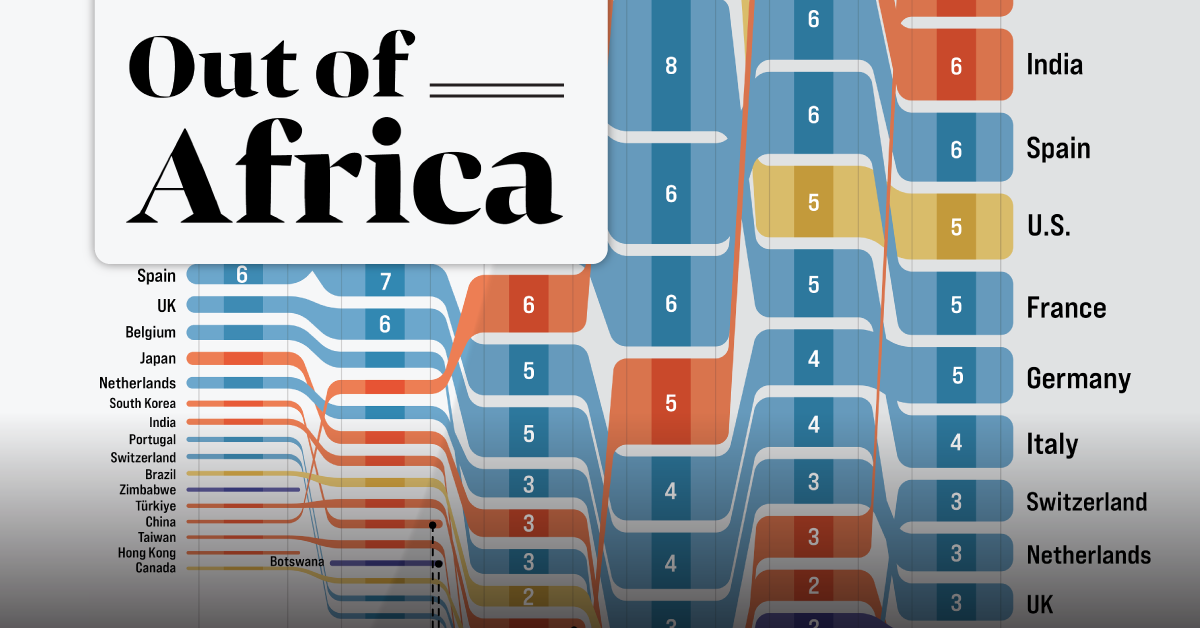Captain Ibrahim Traoré and the New Face of African Sovereignty
From Coup to Consciousness
When Captain Ibrahim Traoré seized power in Burkina Faso on September 30, 2022, he was only 34 years old — the world’s youngest head of state. Within months, he became a continental symbol of resistance against neocolonialism. His fiery speeches, often delivered in traditional attire rather than Western suits, resonated with a generation disillusioned by decades of dependency on Western powers and international lenders.
Traoré’s rise marks more than another military takeover in Africa’s Sahel region. It reflects a deeper rebellion: a demand for dignity, self-sufficiency, and political agency. His leadership has blended revolutionary rhetoric with bold policy moves — and an increasingly authoritarian edge.
Sovereignty in Action: Economic Nationalism and Resource Control
One of Traoré’s defining policies has been economic independence through resource sovereignty. Burkina Faso, Africa’s fourth-largest gold producer, saw foreign mining companies control the bulk of its output for decades.
Since 2022, Traoré’s government has nationalized five gold mines, including major sites like Boungou and Wahgnion previously operated by UK-based Endeavour Mining, reportedly paying $80 million in compensation. A new mining code now gives the state a 15% free stake in all mining projects and the right to purchase an additional 30%. His ultimate goal: national majority control.
He banned unprocessed gold exports and established a national refinery capable of processing over 200 tonnes annually — symbolizing his pledge that “Burkina Faso will mine its own gold.”
These policies have sharply increased revenues — government data claims $18 billion in gold income since 2022, though independent verification is limited. Still, the pivot has invigorated a sense of ownership, even as Western firms withdraw and foreign investment plummets.
Rewiring the Economy: From Austerity to Self-Reliance
Traoré’s economic model combines austerity at the top with populism at the bottom. His government cut ministerial salaries by 30% while raising civil servants’ pay by 50%, attempting to redistribute state wealth.
Rejecting loans from the IMF and World Bank, he instead promotes domestic production — investing in tomato processing plants, cotton mills, fertilizer factories, and small-scale gold refineries. The aim is to keep value addition within national borders.
Other populist measures — banning imported legal attire in courts in favor of traditional clothing, or converting mosque-building offers into school construction — are symbolic attempts to reclaim cultural and spiritual independence.
Despite sanctions and limited access to credit markets, GDP rose from $18.8 billion in 2022 to about $24 billion in 2025, driven by nationalized mining and agriculture. Yet poverty remains staggering at 63.8%, and per capita income growth still lags behind population growth.
Security First: Fighting Insurgency Before Elections
Burkina Faso remains one of the world’s most insecure nations. Since 2015, jihadist groups like JNIM (linked to al-Qaeda) and ISGS (linked to ISIS) have displaced over 2 million people and killed thousands.
When Traoré seized power, he justified the coup as necessary to “save the nation.” He maintains that restoring security must precede elections, asserting that “democracy cannot exist in chaos.”
While some regions have seen improved defense coordination, violence actually worsened in 2024 — fatalities rising 47% year-over-year, according to the Armed Conflict Location & Event Data Project (ACLED). Critics argue that his government’s military purges, forced conscriptions, and harsh anti-terror laws are worsening civilian suffering.
Yet, given the country’s eight coups since independence in 1960, many Burkinabé accept this tradeoff. For them, Traoré’s strong hand — however repressive — feels like the only viable path to stability.
Under Siege: Personal Threats and Political Survival
Traoré’s personal security situation underscores the volatility of his rule. Reports claim he has survived over 18 assassination attempts since 2022. In April 2025, a bodyguard was allegedly offered $5 million by foreign operatives to assassinate him — a claim used to justify sweeping purges within the security forces.
While some analysts suggest these threats may be inflated for propaganda, they illustrate his precarious position — caught between jihadist militias, internal rivals, and external actors resentful of his anti-Western turn.
His government has responded with loyalty tests, surveillance expansion, and high-profile trials. These measures have entrenched his control, but at the cost of personal freedoms.
Partnership with Russia: A New Alignment
Traoré’s pivot from Paris to Moscow has redefined Burkina Faso’s foreign policy. He expelled French troops in early 2023, ending decades of military presence, and later joined Mali and Niger in forming the Alliance of Sahel States (AES) — a collective defense pact oriented away from ECOWAS and toward Russia.
While denying Wagner Group deployment, Traoré welcomed its successor entity, Africa Corps, in 2024 to provide training and intelligence support. Bilateral trade with Russia soared to $753 million in 2024, and agreements were signed for wheat imports, university scholarships, and the establishment of a nuclear research center.
In May 2025, Traoré’s visit to Moscow cemented his role as a vanguard of the new “multipolar Africa.” Critics warn, however, that the anti-colonial rhetoric masks a pivot from French dependency to Russian tutelage — trading one form of control for another.
The U.S. and the West: Deliberate Distancing
In 2025, Traoré reportedly declined multiple U.S. invitations — including one to Donald Trump’s inauguration — citing “local commitments.” His aides claim Washington has “no moral authority” to lecture Africa on governance.
Although some claims about U.S. overtures remain unverified, his anti-Western stance has consolidated his pan-African image. He accuses Western nations of sponsoring insurgencies and economic subjugation — rhetoric that resonates strongly with African youth disillusioned by decades of unfulfilled aid promises.
However, the pivot has real costs: sanctions, diplomatic isolation, and the freezing of certain international aid channels. Western officials privately fear that Traoré’s approach, if emulated, could create a “Sahelian bloc” resistant to Western engagement.
Domestic Reforms and Social Programs
Traoré’s domestic achievements, though uneven, are tangible. His administration has:
-
Built 55 new rural medical centers and rolled out free primary healthcare nationwide.
-
Expanded university enrollment by 70% through new subsidies.
-
Constructed 2,000 km of new roads, launched solar farms covering 30% of national energy, and initiated a high-speed rail link between Ouagadougou and Bobo-Dioulasso.
-
Increased rice production to over 400,000 tonnes, thanks to mechanization and local fertilizer plants.
Yet, repression shadows these gains — journalists have been jailed, independent outlets shuttered, and citizens conscripted under threat. International watchdogs rate Burkina Faso among Africa’s worst for press freedom in 2025.
Pan-African Symbolism and the Traoré Effect
Across Africa, Ibrahim Traoré’s image looms large — especially among young people in Mali, Niger, Guinea, and Chad. His fiery denunciations of France and the IMF echo through TikTok and WhatsApp videos subtitled in Swahili and Hausa.
His popularity helped accelerate the Alliance of Sahel States (AES), a regional bloc aiming for joint defense and economic integration free from Western influence. For millions, Traoré symbolizes a generation unafraid to break from colonial legacies and assert a new African order.
But for others, he embodies the old paradox: military strongmen cloaked in revolutionary language, consolidating power in the name of freedom.
Between Vision and Violence
Is Ibrahim Traoré a visionary reformer or an opportunistic autocrat? The answer lies somewhere in between.
He has undeniably rekindled a spirit of African self-determination, challenged exploitative foreign contracts, and dared to imagine a sovereign path. Yet his methods — marked by censorship, militarization, and indefinite rule — risk reproducing the very authoritarianism that postcolonial Africa has long struggled to escape.
In a region where coups have become contagious, his legacy may hinge on whether he can transition from revolutionary to institution-builder — from the symbol of defiance to the architect of renewal.
Conclusion: The Burden of a New Africa
Captain Ibrahim Traoré’s Burkina Faso stands at a crossroads between emancipation and isolation. His experiment — part nationalism, part militarism, part utopian revival — reflects the growing rejection of dependency across the Global South.
If he succeeds in stabilizing his nation while preserving its sovereignty, he could redefine African leadership for a century. If he fails, Burkina Faso risks becoming another cautionary tale — where idealism burns bright, only to be extinguished by the weight of its contradictions.
कैप्टन इब्राहीम ट्राओरे: अफ्रीकी संप्रभुता का नया चेहरा
तख़्तापलट से चेतना तक
जब कैप्टन इब्राहीम ट्राओरे ने 30 सितंबर 2022 को बुर्किना फासो में सत्ता संभाली, तब वे मात्र 34 वर्ष के थे — दुनिया के सबसे युवा राष्ट्राध्यक्ष। कुछ ही महीनों में वे नव-औपनिवेशिक व्यवस्था के विरुद्ध विद्रोह के प्रतीक बन गए। उनके जोशीले भाषण, अक्सर पश्चिमी सूट की जगह पारंपरिक परिधान में दिए गए, उस पीढ़ी से गहराई से जुड़ते हैं जो पश्चिमी प्रभुत्व और अंतरराष्ट्रीय ऋण संस्थाओं की निर्भरता से थक चुकी है।
ट्राओरे का उदय अफ्रीका के साहेल क्षेत्र में एक और सैन्य तख़्तापलट मात्र नहीं है। यह एक गहरा आंदोलन है — गरिमा, आत्मनिर्भरता और राजनीतिक स्वाधीनता की मांग का। उनका नेतृत्व क्रांतिकारी विचारों और कठोर नीति कदमों का मिश्रण है — जिसमें आदर्शवाद और अधिनायकवाद दोनों झलकते हैं।
संप्रभुता की राह: आर्थिक राष्ट्रवाद और संसाधनों पर नियंत्रण
ट्राओरे की प्रमुख नीतियों में से एक है संसाधनों पर नियंत्रण के माध्यम से आर्थिक स्वतंत्रता। अफ्रीका का चौथा सबसे बड़ा सोना उत्पादक देश, बुर्किना फासो, दशकों से विदेशी कंपनियों के प्रभुत्व में था।
2022 के बाद से, ट्राओरे सरकार ने पाँच सोना खदानों का राष्ट्रीयकरण किया है, जिनमें ब्रिटिश कंपनी एंडेवर माइनिंग की बुंगू और वाहग्निओन खदानें भी शामिल हैं — लगभग 80 मिलियन डॉलर के मुआवज़े के साथ। एक नए खनन क़ानून के तहत अब राज्य को हर परियोजना में 15% नि:शुल्क हिस्सेदारी और अतिरिक्त 30% तक ख़रीदने का अधिकार मिला है। लक्ष्य स्पष्ट है: राष्ट्रीय बहुमत नियंत्रण।
उन्होंने कच्चे सोने के निर्यात पर प्रतिबंध लगाया और एक राष्ट्रीय रिफाइनरी स्थापित की जो प्रति वर्ष 200 टन से अधिक सोना संसाधित कर सकती है। उनका नारा है — “बुर्किना फासो अपना सोना स्वयं निकालेगा।”
इन नीतियों से राजस्व में भारी वृद्धि हुई — सरकारी आँकड़े बताते हैं कि 2022 के बाद से 18 बिलियन डॉलर से अधिक सोना आय के रूप में मिला है, हालांकि स्वतंत्र पुष्टि कठिन है। फिर भी, इसने देश में स्वामित्व और आत्मसम्मान की भावना जगाई है, भले ही विदेशी निवेश घट गया हो।
आर्थिक पुनर्निर्माण: मितव्ययिता से आत्मनिर्भरता तक
ट्राओरे का आर्थिक मॉडल ऊपर से मितव्ययिता और नीचे से जनपक्षीयता का है। उनकी सरकार ने मंत्रियों के वेतन में 30% कटौती की और नागरिक सेवकों के वेतन में 50% की वृद्धि की — राज्य की संपत्ति को पुनर्वितरित करने का प्रयास करते हुए।
आईएमएफ और विश्व बैंक के ऋणों को ठुकराते हुए, उन्होंने घरेलू उत्पादन को बढ़ावा दिया — टमाटर प्रसंस्करण संयंत्र, कपास मिलें, उर्वरक कारखाने और छोटे सोना रिफाइनरी प्रोजेक्ट्स में निवेश किया। उद्देश्य: मूल्य संवर्धन को देश के भीतर रखना।
प्रतीकात्मक निर्णय भी कम नहीं थे — अदालतों में ब्रिटिश शैली की कानूनी पोशाक पर प्रतिबंध और विदेशी मस्जिद निर्माण प्रस्तावों के स्थान पर स्कूल निर्माण को प्राथमिकता देना — सांस्कृतिक और आध्यात्मिक स्वावलंबन के प्रतीक बन गए।
प्रतिबंधों और सीमित ऋण पहुंच के बावजूद, बुर्किना फासो का जीडीपी 2022 में 18.8 बिलियन डॉलर से बढ़कर 2025 में लगभग 24 बिलियन डॉलर हो गया। परंतु गरीबी अब भी 63.8% पर बनी हुई है, और जनसंख्या वृद्धि दर के कारण प्रति व्यक्ति आय में वृद्धि धीमी है।
पहले सुरक्षा, फिर चुनाव: विद्रोह से जूझता राष्ट्र
बुर्किना फासो दुनिया के सबसे असुरक्षित देशों में से एक है। 2015 से, अल-कायदा से जुड़ा जेएनआईएम (JNIM) और आईएसआईएस से जुड़ा आईएसजीएस (ISGS) जैसे आतंकी समूहों ने 20 लाख से अधिक लोगों को विस्थापित किया है और हजारों को मार डाला है।
ट्राओरे ने सत्ता संभालते समय कहा था कि तख़्तापलट “राष्ट्र को बचाने” के लिए आवश्यक था। उनका कहना है कि जब तक देश सुरक्षित नहीं होता, तब तक चुनाव “लोकतंत्र नहीं, अराजकता लाएँगे।”
कुछ क्षेत्रों में सुरक्षा सहयोग बढ़ा है, लेकिन 2024 में हिंसा 47% बढ़ गई, एसीएलईडी (ACLED) के आँकड़ों के अनुसार। आलोचकों का कहना है कि सेना में शुद्धिकरण, जबरन भर्ती और कठोर कानूनों ने नागरिकों की स्थिति और बिगाड़ी है।
फिर भी, 1960 से अब तक हुए आठ तख़्तापलटों के इतिहास को देखते हुए, कई नागरिक इसे आवश्यक समझते हैं। उनके लिए ट्राओरे की कठोरता, repression के बावजूद, सुरक्षा का पर्याय बन गई है।
जीवित रहने की जंग: हत्या की साजिशें और सत्तासंघर्ष
ट्राओरे का शासन लगातार खतरे में है। रिपोर्टों के अनुसार, 2022 से अब तक उन पर 18 से अधिक हत्या के प्रयास हो चुके हैं। अप्रैल 2025 में, एक अंगरक्षक को कथित रूप से विदेशी एजेंटों द्वारा 5 मिलियन डॉलर की पेशकश की गई थी — जिसके बाद कई अधिकारियों को बर्खास्त किया गया।
हालाँकि कुछ विश्लेषक इन साजिशों को प्रचार बताते हैं, वे इस तथ्य को उजागर करते हैं कि ट्राओरे न केवल जिहादी विद्रोहियों बल्कि बाहरी शक्तियों और घरेलू विरोधियों के निशाने पर हैं।
उनकी सरकार ने वफादारी परीक्षण, निगरानी और सख्त सुरक्षा उपायों को लागू किया है — जिससे सत्ता मजबूत हुई, लेकिन नागरिक स्वतंत्रता सिकुड़ गई।
रूस के साथ नई साझेदारी
ट्राओरे ने बुर्किना फासो की विदेश नीति को पूरी तरह पलट दिया। उन्होंने 2023 में फ्रांसीसी सैनिकों को देश से बाहर निकाला, जिससे दशकों पुरा सैन्य प्रभाव समाप्त हुआ, और माली व नाइजर के साथ मिलकर एलायंस ऑफ़ साहेल स्टेट्स (AES) का गठन किया — जो पश्चिमी प्रभाव से हटकर रूस के साथ संरेखित हो रहा है।
हालाँकि उन्होंने वैगनर समूह की तैनाती से इनकार किया, लेकिन 2024 से उसके उत्तराधिकारी “अफ्रीका कॉर्प्स” को प्रशिक्षण व खुफिया सहयोग के लिए आमंत्रित किया। रूस के साथ व्यापार 2024 में 753 मिलियन डॉलर तक पहुँच गया, और गेहूँ आपूर्ति, छात्रवृत्तियाँ व एक परमाणु अनुसंधान केंद्र की योजना पर समझौते हुए।
मई 2025 में मास्को की उनकी यात्रा ने उनके “बहुध्रुवीय अफ्रीका” के विज़न को सुदृढ़ किया। आलोचकों का कहना है कि यह “फ्रांसीसी निर्भरता की जगह रूसी प्रभाव” मात्र है — जबकि समर्थक इसे “व्यावहारिक और आवश्यक” मानते हैं।
अमेरिका और पश्चिम से दूरी
2025 में ट्राओरे ने डोनाल्ड ट्रंप के उद्घाटन समारोह सहित कई अमेरिकी निमंत्रण ठुकरा दिए, यह कहते हुए कि “हमारे अपने देश की ज़रूरतें सर्वोपरि हैं।” उनके सलाहकारों ने अमेरिका पर “नव-औपनिवेशिक रवैये” और “अफ्रीकी संप्रभुता में हस्तक्षेप” का आरोप लगाया।
हालाँकि कुछ आमंत्रणों की पुष्टि नहीं हुई, परंतु उनका पश्चिम-विरोधी रुख उनके पैन-अफ्रीकी छवि का हिस्सा बन गया है। इसके परिणामस्वरूप पश्चिमी सहायता में कटौती, प्रतिबंध और कूटनीतिक अलगाव भी बढ़ा है।
अमेरिकी अधिकारियों को भय है कि ट्राओरे का यह मॉडल पूरे साहेल क्षेत्र को “पश्चिम-विरोधी गुट” में बदल सकता है।
घरेलू नीतियाँ और विकास कार्य
ट्राओरे की सरकार ने कई ठोस कार्य किए हैं —
-
55 ग्रामीण स्वास्थ्य केंद्रों का निर्माण और मुफ़्त प्राथमिक स्वास्थ्य सेवा की शुरुआत।
-
विश्वविद्यालय नामांकन में 70% वृद्धि।
-
2,000 किलोमीटर नई सड़कें, 30% ऊर्जा के लिए सौर परियोजनाएँ, और तेज़ गति रेल परियोजना।
-
धान उत्पादन 4 लाख टन से अधिक — स्थानीय उर्वरक संयंत्रों और मशीनरी वितरण से संभव हुआ।
फिर भी, पत्रकारों की गिरफ़्तारी, मीडिया प्रतिबंध और जबरन भर्ती जैसे कदमों ने उनके शासन पर दमन का साया डाला है।
पैन-अफ्रीकी प्रभाव: “ट्राओरे प्रभाव”
अफ्रीका भर में ट्राओरे का नाम गूंज रहा है — विशेषकर युवा वर्ग में। माली, नाइजर, गिनी और चाड के युवा उनके भाषणों के वीडियो टिकटॉक और व्हाट्सएप पर साझा करते हैं।
उनकी लोकप्रियता ने एलायंस ऑफ़ साहेल स्टेट्स (AES) को गति दी — जो फ्रांसीसी प्रभुत्व से मुक्त रक्षा और आर्थिक सहयोग की दिशा में बढ़ रहा है।
कई लोगों के लिए, ट्राओरे “स्वतंत्र अफ्रीका” के प्रतीक हैं। लेकिन दूसरों के लिए, वे पुराने सैन्य शासकों की ही नई पोशाक हैं — जो “स्वतंत्रता” के नाम पर सत्ता को केंद्रीकृत कर रहे हैं।
दृष्टि और दमन के बीच संतुलन
क्या इब्राहीम ट्राओरे दूरदर्शी सुधारक हैं या अवसरवादी सत्तावादी? उत्तर शायद बीच में कहीं है।
उन्होंने अफ्रीकी आत्मनिर्भरता की भावना को पुनर्जीवित किया, विदेशी दोहन को चुनौती दी और साहसिक नीतियाँ लागू कीं। परंतु, मीडिया सेंसरशिप, सैन्यीकरण और अनिश्चित संक्रमणकाल जैसी प्रवृत्तियाँ उनके लोकतांत्रिक वादों को कमजोर करती हैं।
उनकी सबसे बड़ी परीक्षा यह होगी कि क्या वे क्रांतिकारी नेता से संस्थापक राष्ट्रनिर्माता बन सकते हैं — विद्रोह के प्रतीक से नवयुग के निर्माता।
निष्कर्ष: नई अफ्रीका का बोझ
कैप्टन इब्राहीम ट्राओरे का बुर्किना फासो मुक्ति और अलगाव के बीच खड़ा है। उनका प्रयोग — राष्ट्रवाद, सैन्यवाद और आत्मनिर्भरता का अनूठा मिश्रण — वैश्विक दक्षिण में बढ़ती निर्भरता-विरोधी भावना को दर्शाता है।
यदि वे अपने राष्ट्र को स्थिर रखते हुए संप्रभुता कायम कर पाते हैं, तो वे आने वाले सदी के लिए अफ्रीकी नेतृत्व को पुनर्परिभाषित कर सकते हैं। लेकिन यदि वे असफल रहे, तो बुर्किना फासो एक और चेतावनी कथा बन जाएगा — जहाँ आदर्शवाद तो प्रबल था, परंतु विरोधाभासों के बोझ तले दब गया।






